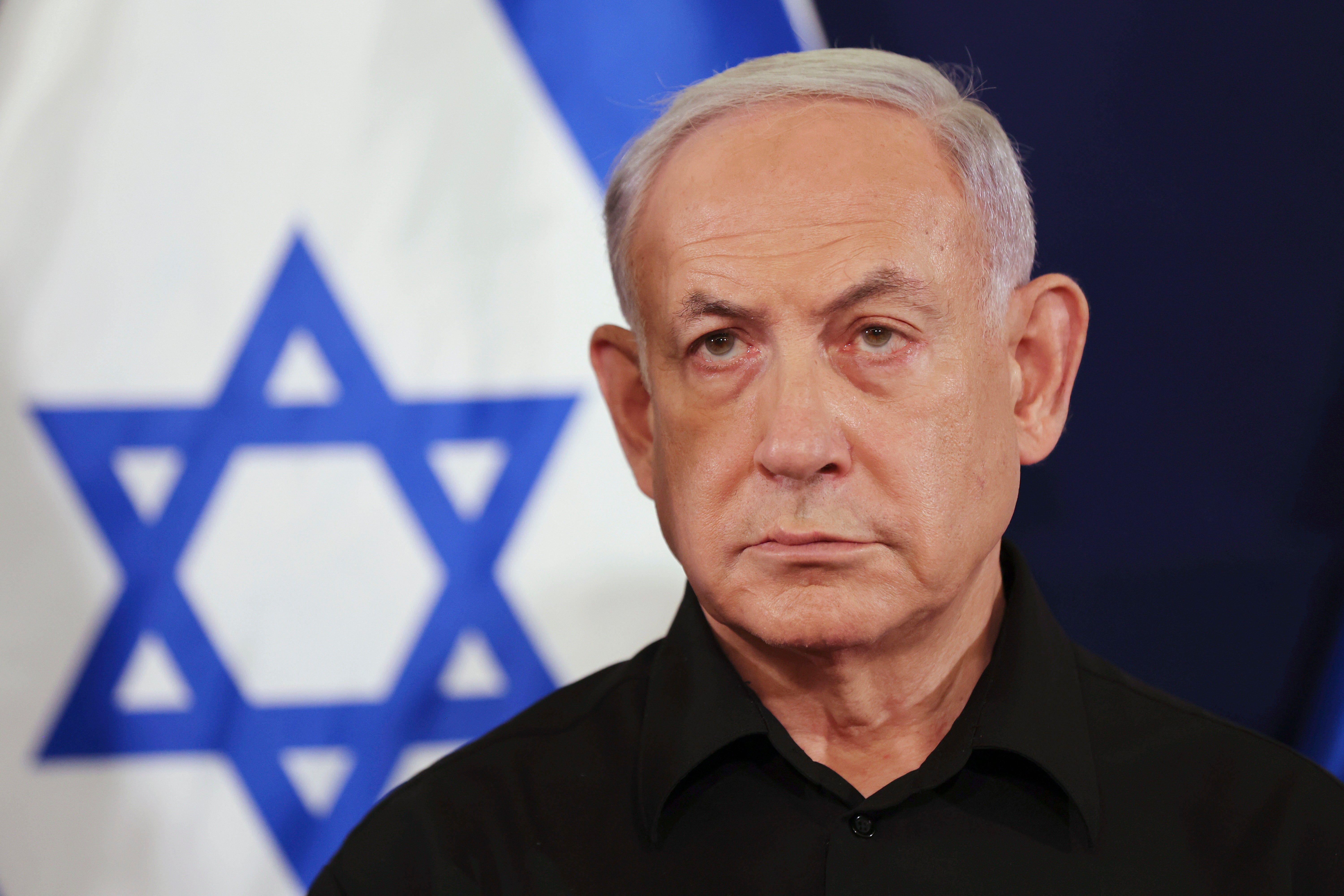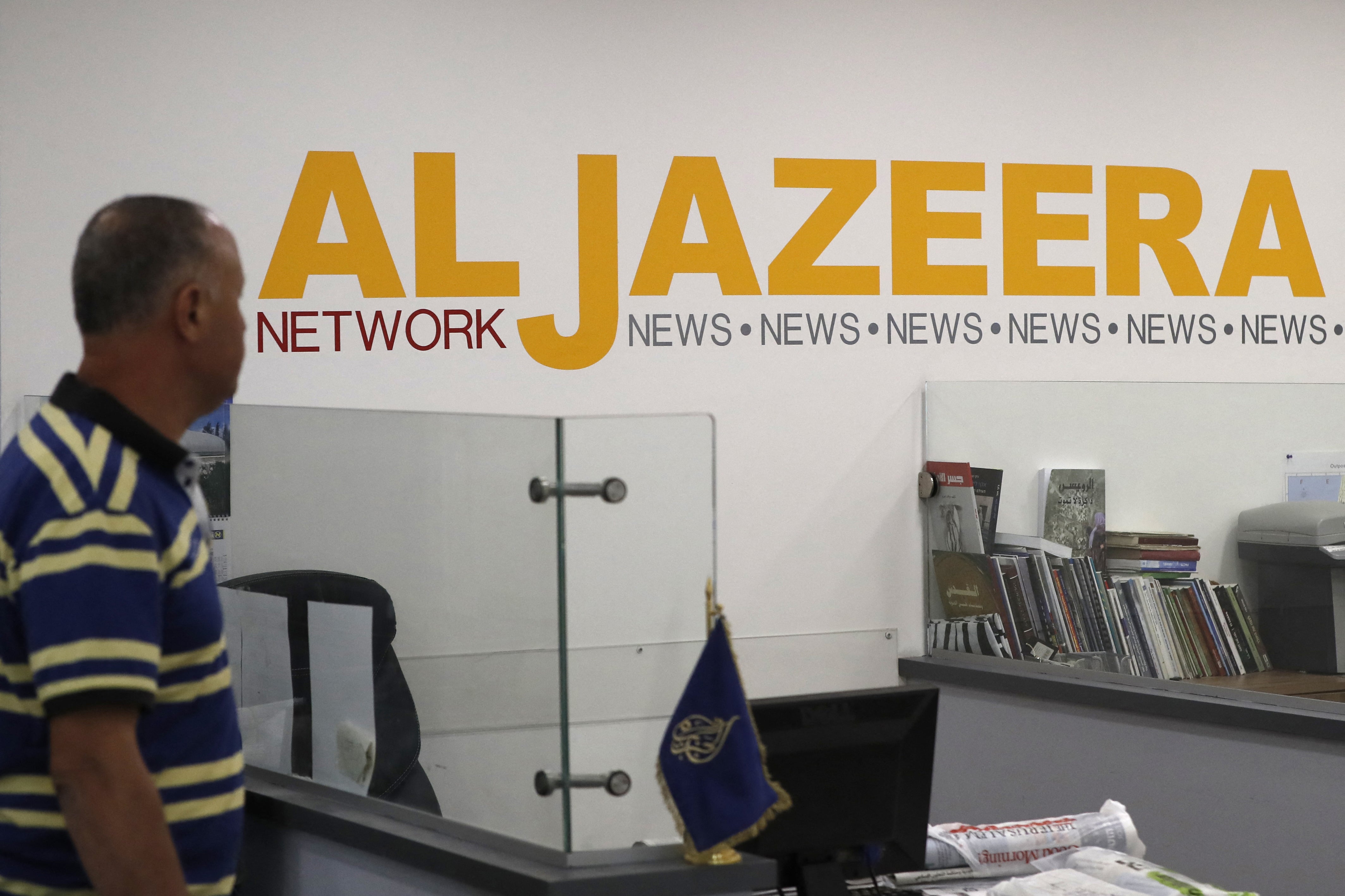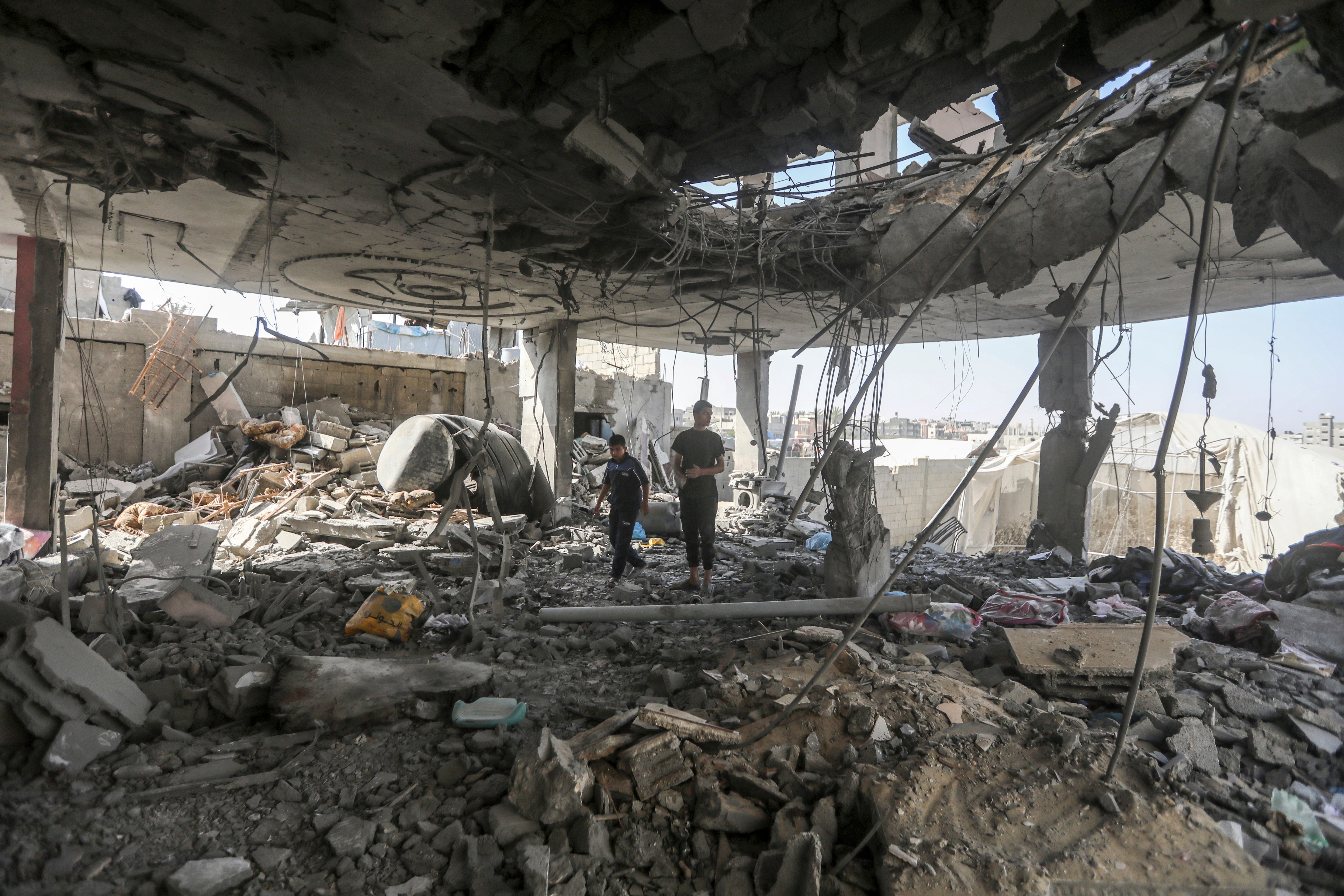Israel orders Al Jazeera to shut down as Netanyahu rejects peace talks
Israel refuses Hamas demand for complete Israeli withdrawal from Gaza as negotiations disintegrate
Your support helps us to tell the story
From reproductive rights to climate change to Big Tech, The Independent is on the ground when the story is developing. Whether it's investigating the financials of Elon Musk's pro-Trump PAC or producing our latest documentary, 'The A Word', which shines a light on the American women fighting for reproductive rights, we know how important it is to parse out the facts from the messaging.
At such a critical moment in US history, we need reporters on the ground. Your donation allows us to keep sending journalists to speak to both sides of the story.
The Independent is trusted by Americans across the entire political spectrum. And unlike many other quality news outlets, we choose not to lock Americans out of our reporting and analysis with paywalls. We believe quality journalism should be available to everyone, paid for by those who can afford it.
Your support makes all the difference.Israel’s prime minister Benjamin Netanyahu has ordered the local offices of Qatar’s Al Jazeera satellite news network to close.
The order, which includes confiscating broadcast equipment, preventing the broadcast of the channel’s reports and blocking its websites, is believed to be the first time Israel has ever shut down a foreign news outlet.
Sunday’s crackdown on Al Jazeera came as Mr Netanyahu appeared to walk away from ceasefire talks after refusing to agree to Hamas’s demands to end the war in Gaza.
In talks in Cairo on Saturday, an adviser to Hamas leader Ismail Haniyeh said any deal would have to include an Israeli withdrawal from Gaza.
While Israeli officials did not send a delegation to Cairo, Mr Netanyahu said the state of Israel “cannot accept” such demands.
Speaking on Sunday, he said: “We are not prepared to accept a situation in which the Hamas brigades come out of their bunkers, take control of Gaza again, rebuild their military infrastructure, and return to threatening the citizens of Israel in the settlements surrounding the southern mountains, in all parts of the country.”

In a statement released shortly after Mr Netanyahu’s, the Hamas chief said the group was still keen on reaching a comprehensive ceasefire that ends the Israeli “aggression”, guarantees Israel’s withdrawal from Gaza, and achieves “a serious” deal to free Israelis being held hostage in exchange for the release of Palestinian prisoners.

Mr Haniyeh also blamed the Israeli prime minister for “the continuation of the aggression and the expansion of the circle of conflict, and sabotaging the efforts made through the mediators and various parties”.
Indicating that this round of talks may soon unwind, a Palestinian official said: “If Netanyahu doesn’t change his mind, there will be no reason to stay. They can always reconvene if that changes.”
In response to Hamas’s demands, Israeli defence minister Yoav Gallant said: “We are observing worrying signs that Hamas does not intend to reach an agreement with us.
“This means strong military action in Rafah will begin in the very near future, and in the rest of the Strip.”


According to Gaza’s health ministry, more than 34,600 Palestinians have been killed, 29 of them in the past 24 hours, and more than 77,000 have been wounded in Israel’s assault on the besieged enclave since Hamas killed 1,200 people in a shock attack on 7 October.
A further blow to peace negotiations was struck on Sunday when Israel also closed the main crossing point for delivering desperately needed humanitarian aid for Gazans starving after almost seven months of war.
The Israeli military reported 10 projectiles were launched at the crossing in southern Israel and said its fighter jets later struck the source.
Hamas said it had been targeting Israeli soldiers in the area. Israel’s Channel 12 TV channel said 10 people were wounded, three seriously. It was unclear how long the crossing would be closed.
The attack came shortly after the head of the UN World Food Programme asserted there was a “full-blown famine” in devastated northern Gaza, one of the most prominent warnings yet of the toll of restrictions on food and other aid entering the territory.
Join our commenting forum
Join thought-provoking conversations, follow other Independent readers and see their replies
Comments